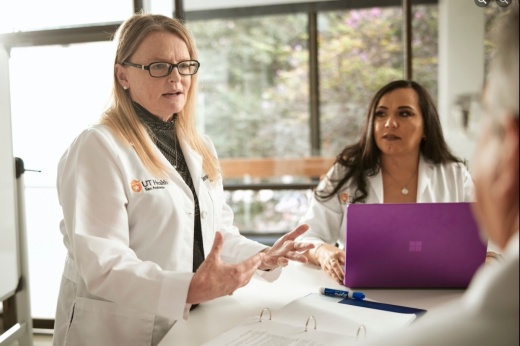The background
According to an April 3 news release, the new institute contains UT Health San Antonio’s existing Be Well Texas initiative as part of a new, overarching comprehensive approach toward research, clinical and public health programs, as well as education and community engagement to better explore addiction and related conditions.
Officials with UT Health San Antonio said their objective with the establishment of the Be Well Institute is to form a renowned substance use and addiction facility for clinical care and research.
UT Health San Antonio leaders said substance use is a public health problem that includes challenges such as habitual use of opioids, alcohol, marijuana, methamphetamine and synthetic cannabinoids as well as a heightened awareness of mental and emotional distress, which they said can be worsened by a need to self-medicate.
The release states the rate of alcohol-related deaths in the United States doubled from 1999 to 2017, and more than 107,000 Americans died in 2022 from drug overdose, the highest rate ever recorded.
The release states the institute will be funded with $50 million-plus in National Institutes of Health, state and other federal money annually. The institute will support grants and contracts, and partner with organizations at UT Health San Antonio that provide comprehensive care for individuals coping with substance use.
The new institute will also launch research programs to move forward the understanding of substance use onto a path of more quickly improving health, and reducing illness and death. Jennifer Sharpe Potter, Be Well Texas founding director and vice president for research at UT Health San Antonio, will oversee the establishment of the Be Well Institute.
What they’re saying
Dr. Robert Hromas, acting president of UT Health San Antonio, called the Be Well Institute a key development in efforts to investigate substance abuse and find efficient treatments that can be applied in a compassionate manner.
“This institute will lead transformational change in addressing substance use and substance use disorders throughout Texas and the nation,” Hromas said in a statement. “We support the discovery, development and implementation of new treatments, or more effective use of current treatments, and this important effort will facilitate the recruitment of outstanding scientists and clinicians to UT Health San Antonio, accelerating collaboration among scientists, educators and clinicians to discover, validate and implement new treatments, and serve as a vehicle for partnerships among stakeholders in the community to include scientists, providers and policymakers.”





